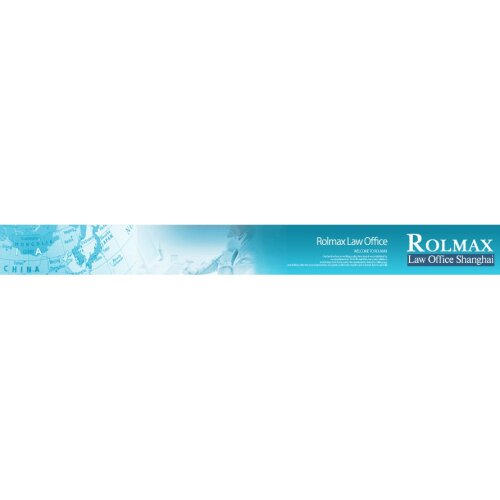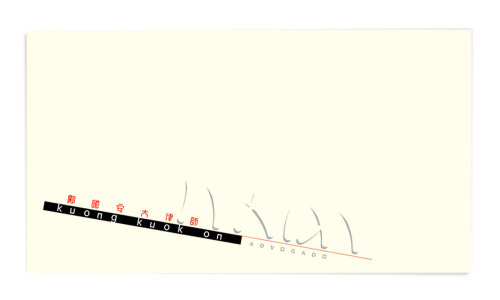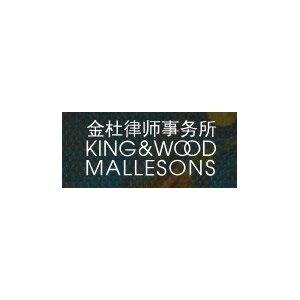Best Marine Insurance Lawyers in China
Share your needs with us, get contacted by law firms.
Free. Takes 2 min.
Or refine your search by selecting a city:
List of the best lawyers in China
About Marine Insurance Law in China
Marine Insurance in China is a critical legal framework that provides financial protection for businesses and individuals against losses or damages incurred during maritime transport. This area of law is governed by China's Marine Insurance Law, part of the broader Maritime Code which was enacted in 1993. The legislation outlines the rights and obligations of the parties involved, including insurers and policyholders, and covers a wide range of issues from cargo insurance to hull and machinery insurance. The purpose of marine insurance is to safeguard investment and facilitate trade by mitigating the risks associated with maritime transportation.
Why You May Need a Lawyer
Navigating marine insurance laws can be complex, and engaging a lawyer may be necessary in several situations. For example, disputes can arise regarding the terms and conditions of a policy or the adequacy of coverage. A lawyer can help interpret these terms and represent clients in negotiations or litigation. Additionally, when a claim is denied, a lawyer is crucial in advocating for the policyholder’s rights and ensuring a fair settlement. Other situations include the drafting and reviewing of insurance contracts and advising clients on compliance with local maritime laws and international conventions.
Local Laws Overview
Key aspects of China's marine insurance law include the principle of utmost good faith, which requires all parties to disclose material facts truthfully. Failure to do so can void the insurance contract. The law specifies the extent and limitations of coverage in policies, typically covering perils such as collision, sinking, piracy, and natural disasters. Additionally, the subrogation principle allows insurers to pursue a third party that caused the loss after compensating the policyholder. Understanding these principles and how they apply to specific situations is crucial for anyone involved in marine insurance.
Frequently Asked Questions
What is covered under a standard marine insurance policy?
A standard marine insurance policy usually covers risks associated with the transportation of goods over water, including loss or damage due to accidents, theft, and natural disasters, but it typically does not cover war zones unless specifically included.
Who can purchase marine insurance?
Marine insurance can be purchased by ship owners, charterers, cargo owners, and logistics companies, essentially anyone with an insurable interest in the maritime venture.
What is the role of a marine insurance broker?
A marine insurance broker acts as an intermediary between the insurance company and the policyholder, helping clients find suitable coverage and advising on policy terms and risk management strategies.
How are claims processed in marine insurance?
The claim process usually involves notifying the insurer of the loss, providing supporting documentation (such as a notice of claim and survey report), and cooperating with the insurer during their investigation.
Can marine insurance contracts be customized?
Yes, marine insurance contracts can be tailored to cover specific risks and needs, although customization may affect premium rates and coverage limits.
What are some exclusions in a marine insurance policy?
Common exclusions include intentional act losses, wear and tear, inherent vice, and incapacity of vessels unless coverage is specifically extended to include these risks.
How is the premium for marine insurance determined?
Premium calculations take into account the type and value of the cargo, the nature of the voyage, the reputation of the shipping company, and the current market conditions among other factors.
What legal framework governs marine insurance disputes in China?
Disputes are primarily handled under the Chinese Maritime Code and related regulations, with litigation usually proceeding through maritime courts in China.
Do international conventions apply to marine insurance in China?
Yes, international conventions such as the Hague-Visby Rules may apply, particularly in cases involving international maritime transport, enhancing uniformity and clarity in legal proceedings.
What documents are essential for marine insurance underwriting?
Essential documents include a completed insurance proposal form, details of the subject-matter insured, voyage details, and often, previous loss records or marine survey reports.
Additional Resources
Those seeking further information or assistance with marine insurance in China might consider consulting resources such as the China Insurance Regulatory Commission (CIRC), the Shanghai Maritime Court, or professional organizations like The Association of Average Adjusters of China. Law firms specializing in maritime law are also valuable for personalized legal assistance.
Next Steps
If you need legal assistance with marine insurance, consider reaching out to a specialized maritime lawyer who understands both the local and international maritime law framework. Be prepared to provide documentation related to your insurance policy and any correspondence with the insurer. You might also explore mediation services if you are seeking an alternative dispute resolution approach before resorting to litigation.
Lawzana helps you find the best lawyers and law firms in China through a curated and pre-screened list of qualified legal professionals. Our platform offers rankings and detailed profiles of attorneys and law firms, allowing you to compare based on practice areas, including Marine Insurance, experience, and client feedback.
Each profile includes a description of the firm's areas of practice, client reviews, team members and partners, year of establishment, spoken languages, office locations, contact information, social media presence, and any published articles or resources. Most firms on our platform speak English and are experienced in both local and international legal matters.
Get a quote from top-rated law firms in China — quickly, securely, and without unnecessary hassle.
Disclaimer:
The information provided on this page is for general informational purposes only and does not constitute legal advice. While we strive to ensure the accuracy and relevance of the content, legal information may change over time, and interpretations of the law can vary. You should always consult with a qualified legal professional for advice specific to your situation.
We disclaim all liability for actions taken or not taken based on the content of this page. If you believe any information is incorrect or outdated, please contact us, and we will review and update it where appropriate.
Browse marine insurance law firms by city in China
Refine your search by selecting a city.















